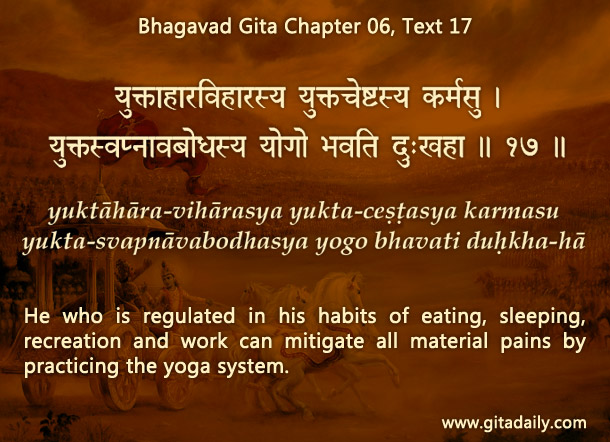The self we are eternally refers to the soul, part of Krishna – that’s our eternal spiritual identity. The self we are presently refers to our current bi-dimensional embodied existence, wherein the soul is encased in a material body.
Just as a person driving a vehicle needs to attend to the vehicle’s needs, so too we need to attend to the body’s needs. In fact, the need for us to care for our body is even greater because whereas a person can move even without a vehicle, the soul cannot function in the material world without a body. Our acquisition of spiritual knowledge changes the direction of our life-journey – we seek not material gratification, but spiritual realization. However, even with the changed direction, our vehicle remains the same – we still need the body. We can’t practice yoga and gain spiritual realization without a functional body.
That’s why even for yogi-renunciates, what to speak of for lay yogis, the Bhagavad-gita (06.17) urges balance in attending to bodily needs such as eating and sleeping. Excess in spiritual practices can make us unwarrantedly neglect our material needs, creating unnecessary misery materially and unnecessary obstacles spiritually.
No doubt, we are much more likely to become imbalanced in the opposite extreme, wherein we care so much for the body that we neglect our soul. After all, we live in a largely materialistic culture, wherein very few people seek spiritual realization. So to avoid this extreme, we absolutely need regular scriptural education and spiritual association.
But that same education and association helps us avoid the other extreme too. The art of living is to learn to balance the self we are eternally with the self we are presently – to live in such a way that we care for our body while we realize our soul.


Leave A Comment